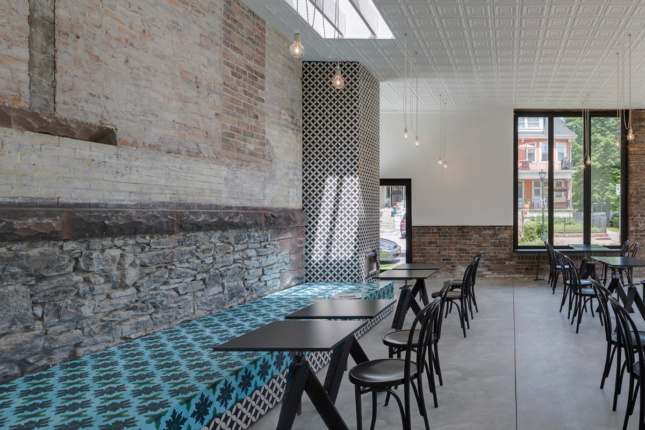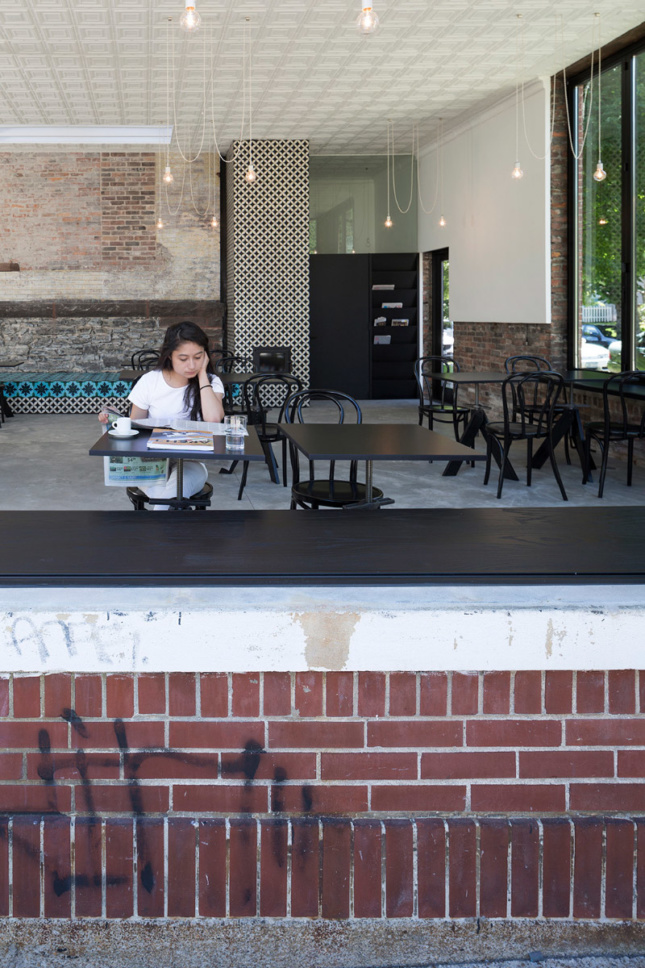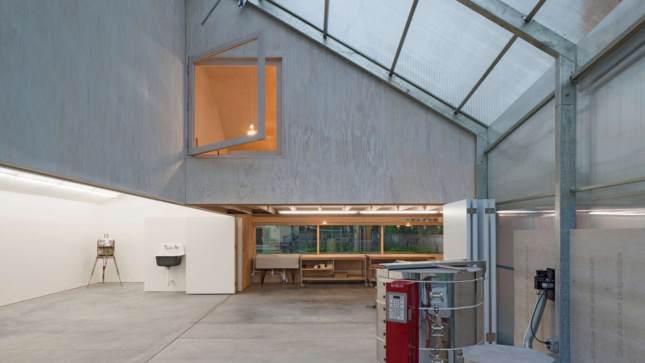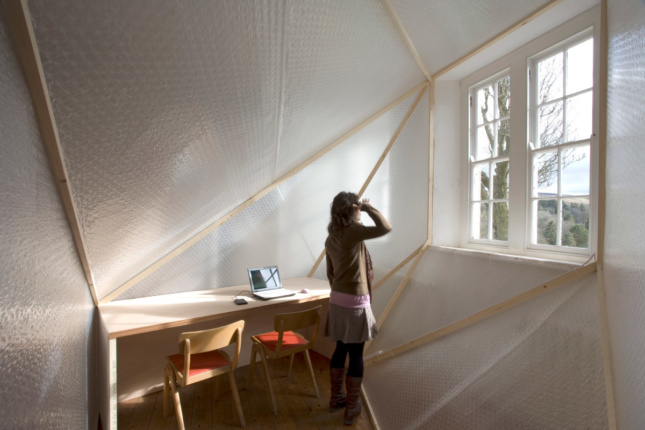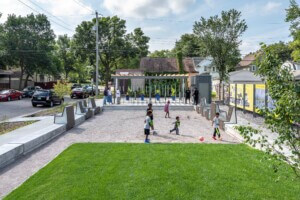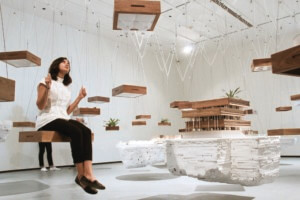The Architectural League of New York’s Emerging Voices award and lecture series highlights individuals and firms with distinct design “voices,” singling out those with the potential to go on to even greater heights.
2018 saw two rounds of judging; first by a panel of past Emerging Voices winners, and a second to pick the winners. The first-round jury included Virginia San Fratello, Sebastian Schmaling, Wonne Ickx, Lola Sheppard, Marcelo Spina, Carlos Jimenez, and Marlon Blackwell, as well as members of the second-round jury, Sunil Bald, Lisa Gray, Stella Betts, Jing Liu, Paul Makovsky, Tom Phifer, Chris Reed, and Billie Tsien.
AN profiled all of the emerging voices firms in our February print issue. Davidson Rafailidis founders Stephanie Davidson and Georg Rafailidis will deliver their lecture on March 15, 2018, at the SVA Theatre in Manhattan.
Spatial planning is king at Davidson Rafailidis. It has to be, because the small husband-and wife-run studio is focused on designing tight projects with equally tight budgets that can be adapted for long-term use.
Both founding partners, Stephanie Davidson and Georg Rafailidis, teach in the nearby State University of New York at Buffalo’s architecture department and frequently integrate more academic theory into their built projects than a traditional studio. It’s a natural progression, as the couple originally met while they were students at the Architectural Association School of Architecture, in London.
“In the end, the realized projects are very similar to essays,” explained Davidson. “When the project is inhabited and really comes alive, we always try to keep tabs, even on private projects, to see how they’re used and what changes and what needs to be adapted. We see that as ongoing research, to see how people respond to our ongoing spatial interventions.” Nowhere is this approach more evident than in the studio’s 2015 transformation of a formerly vacant corner store in Buffalo into the vibrant Cafe Fargo (now under the name, Tipico Coffee). The coffee shop strips the monolithic brick building back to its raw materials and introduces colored tiles throughout to delineate the new space from the old.

Working under serious budget constraints, Davidson Rafailidis was forced to “make machinery itself the architecture,” according to Rafailidis. Instead of using a bulky HVAC system, the studio installed large operable windows and a skylight, for passive cooling, and a wood-burning “kachelofen” hearth, clad in tile, that provides ambient heat.
Most tellingly, Rafailidis said that guests often don’t realize that the heater is a new addition to the space. The cafe has grown to host pop-up events and public gatherings, reinforcing the building’s continually evolving relationship with its users.

The 2016 project He, She & It, a tripartite studio space in Buffalo for a creative couple, unifies a painter’s studio (He), ceramic and silver-working area (She), and greenhouse (It) under one umbrella. While each space has a vastly different use, all of them use a mono-pitched roof with a long overhang to funnel rainwater into a garden at the building’s base. Each space relies on passive heating and cooling, as well as natural overhead lighting, and the greenhouse can be opened up to share its solar gain with the working spaces in colder months. He, She & It has won its fair share of acclaim in the last year—though if this recognition has made Davidson and Rafailidis’s lives more hectic, they can’t tell.
“It’s really a challenge with our small size. Even to go to see a building someone wants to show us can take half of our workday,” said Davidson. “Both of us are on AutoCAD, and on Rhino, and making models, and also going to meetings; it’s a big challenge. It doesn’t feel like it’s more work, because we’ve become accustomed to this crazy schedule.”






